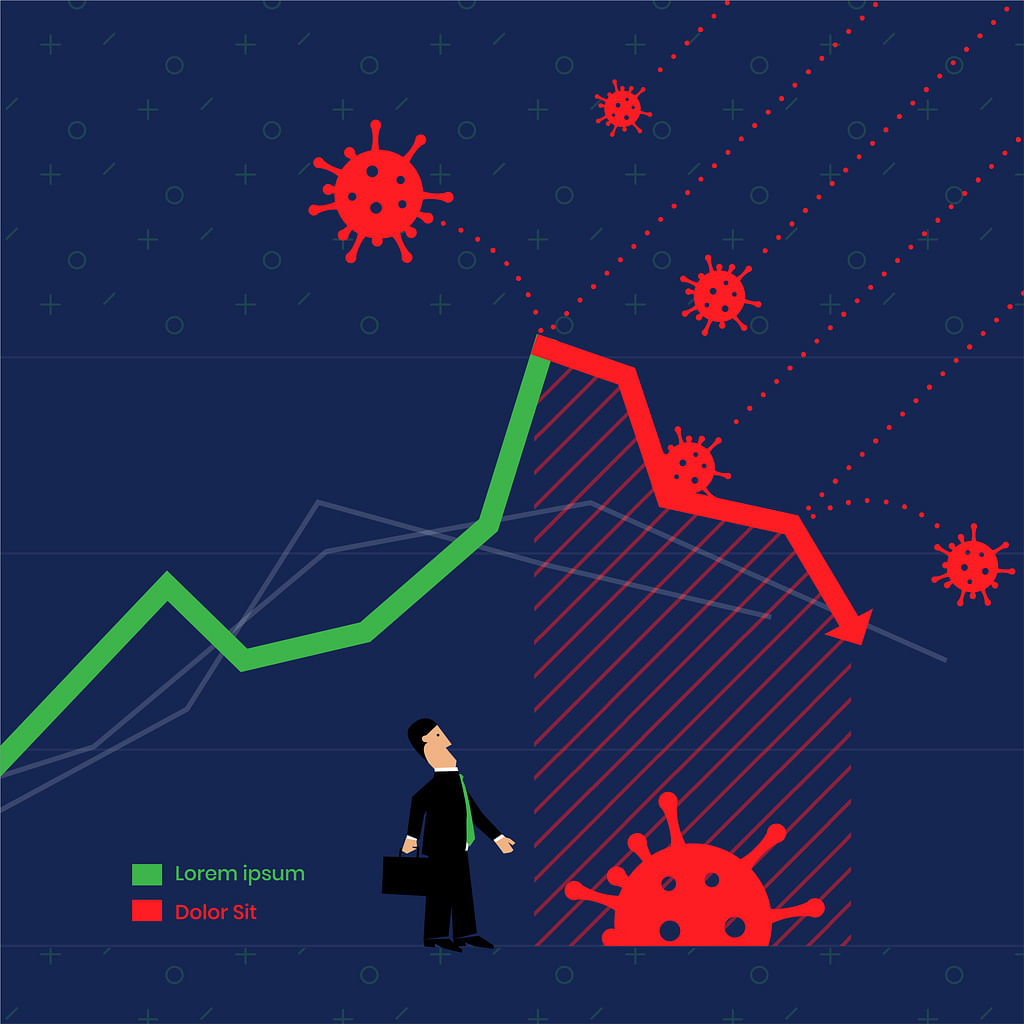
The impact of nearly two months of countrywide lockdown will be so huge that India’s economy could contract by over 40% in April-June quarter of 2020-21, a research by India’s largest public sector lender State Bank of India (SBI) said Tuesday, becoming the first domestic institution to put a number to GDP decline after Goldman Sachs projected a gigantic dip of 45% for the same quarter of FY21.
Even the seven days of lockdown in March may have wrecked the economy to an extent that growth will dip to 1.2% in December-March quarter of 2019-20 from the projected 4.5%, SBI research Ecowrap said, three days ahead of the official release of the data on Friday.
India’s economy lost Rs 1.4 lakh crore in those seven days from March 24 to 31.
“We believe that Q4 (Dec-Mar) GDP growth would be around 1.2% as the economic activity in the last seven days of March month was completely suspended due to nation-wide lockdown. Due to this, there was an estimated loss of at least Rs 1.4 lakh crore during those seven days of lockdown,” SBI research report Ecowrap said early today.
Subsequently, it lowered the annual 2019-20 GDP forecast to 4.2% from an earlier official projection of 5%.
It, however, said the July-September GDP numbers could witness a smart recovery and clock 7.1%, but only if India was able to sustain the demand.
It estimated that October-December and January-March (2020-21) growth numbers could also look much better, with an average of 6%, but the July-September quarter bump could come down with the immediate bust in pent up demand subsiding subsequently.
However, things could rapidly change as the income and job loss could again propel us towards a lower equilibrium after the initial bump up.
“We thus believe the government might be looking at the data more closely to prevent such loss in momentum in the third and fourth quarters and even come up with another targeted package later in the year,” the paper said.
Meanwhile, based on the current seven-days moving average of new COVID-19 cases witnessed in India, it hoped that new cases were likely to peak somewhere anytime in the last week of June, beginning June 20. Following that, the new cases were expected to witness steep fall till the beginning of August after which it is expected to flatten by mid-September.
However, it said the estimates were purely based on an assessment of current trends that could rapidly change.
